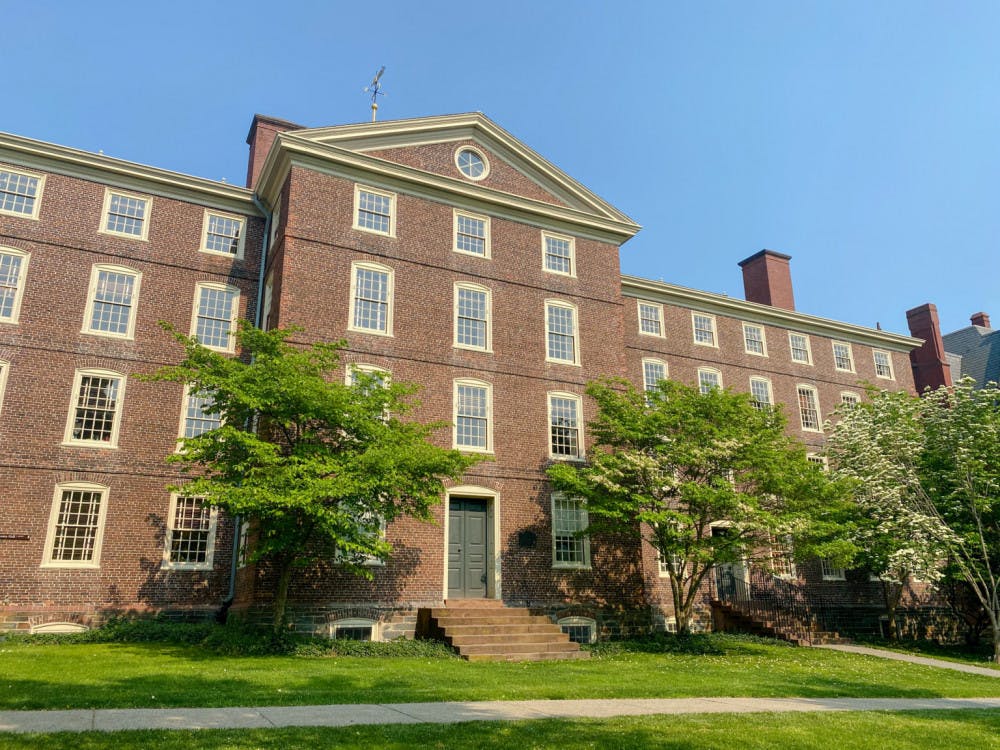The majority of University employees currently working remotely will be required to return to campus full-time before the beginning of the fall 2021 semester, excluding a limited few who will be allowed to continue with hybrid or remote work as approved through a formal process, President Christina Paxson P’19 wrote in a June 7 community-wide email.
Those few will be determined by a set of criteria made by the Future of Work Steering Committee, a group created in March and tasked with crafting the University’s remote work policy. Those criteria, as well as a process created by the Steering Committee, will determine which positions will be in person and which will be “eligible for a supervisor to work with a staff member to explore either hybrid or remote status,” Paxson wrote.
The official policy outlines a set of guiding general conditions for a position being deemed remote- or hybrid-eligible, including having the necessary equipment for work, having no active disciplinary actions on file and having received a recent “satisfactory” or higher performance evaluation. Employees’ supervisors and University Human Resources will both need to approve hybrid or remote eligibility.
Guidance to supervisors on determining remote/hybrid eligibility will come in multiple forms, including “written resources for supervisors who oversee positions in specific job families, resources in Workday, meetings and information sessions and consultation with UHR staff,” University spokesperson Brian Clark wrote in an email to The Herald. He added that supervisors and UHR are “reviewing the requirements of each individual position, the operational needs of the unit and the constituents it serves” to determine eligibility of positions.
“Maintaining Brown’s strong sense of community and our collaborative environment is a priority as we plan for the year ahead,” Paxson added. “However, we are creating the possibility for some jobs to be done in hybrid or remote fashion when we can be certain that alternative ways of working will not negatively affect academic or administrative operations or disrupt the ability of others to do their work.”
The new policies created by the Steering Committee will be incorporated into the University’s new Alternative Work Assignments policy, a set of rules governing employees working away from the traditional in-person workplace.
“While the number of ‘remote-eligible’ positions is likely to remain small, certainly we can expect a larger number of Alternative Work Assignments with hybrid schedules than prior to the COVID-19 pandemic,” Clark wrote. The number of remote and hybrid positions is likely to fluctuate, Clark added, as different departments adjust their approaches over time.
Paxson noted in her announcement that the Steering Committee’s work will focus on equity as it fields requests for remote and hybrid work. “The classification of positions as being eligible for consideration for remote or hybrid status will be determined by the requirements of the position and the operational needs of the unit and the constituents it serves,” she wrote. “This approach ensures that employees in very similar roles will have the same options to apply for hybrid or remote work arrangements.”
In practice, Clark wrote, an equitable approach will entail ensuring that “decision-making is guided by a consistent set of principles and considerations.”
Paxson has repeatedly emphasized in messages to the community that the University’s plans for an in-person, normal fall hinge on near-universal vaccination. The University will require that all employees and students currently engaged in on-campus activities receive a full COVID-19 vaccination by July 1, The Herald previously reported.
One important factor in the decision to bring most employees back for full on-campus work, Paxson wrote, was a belief that remote work cannot fully replace the collaboration and sense of community achieved in person. Especially significant, according to Paxson, is the University’s “people-centered culture.”
“Even as we recognize the flexibility of some remote work, as we plan for the year ahead, we are sensitive to the reality that our people-centered culture cannot easily be nurtured, cultivated or sustained via Zoom screens,” Paxson wrote.

Ben Glickman was the 132nd editor-in-chief and president of The Brown Daily Herald. He previously served as a metro editor and oversaw the College Hill and Fox Point beat, in addition to writing and editing about city politics, COVID-19 and the 2020 election. He is the co-creator of the Bruno Brief, The Herald's first news podcast. In his free time, he is passionate about birds (also tweeting) and eating way too spicy food.





